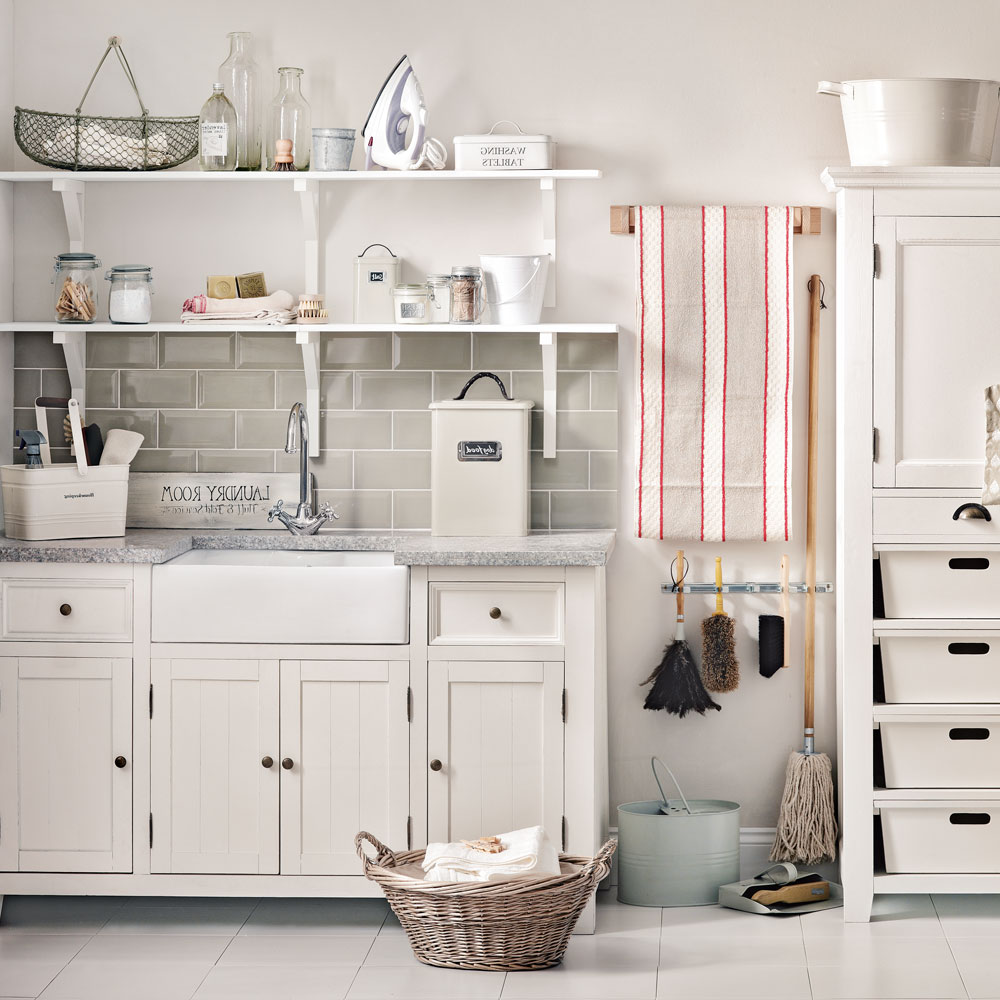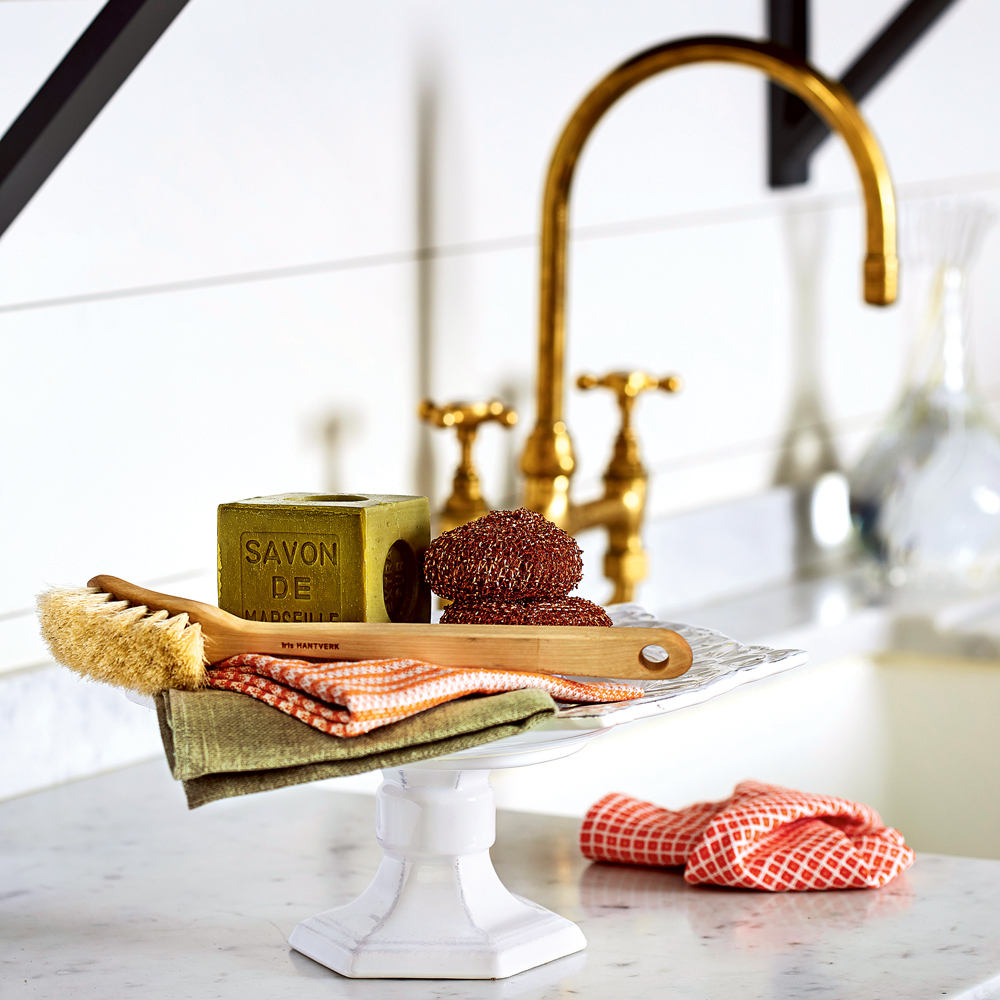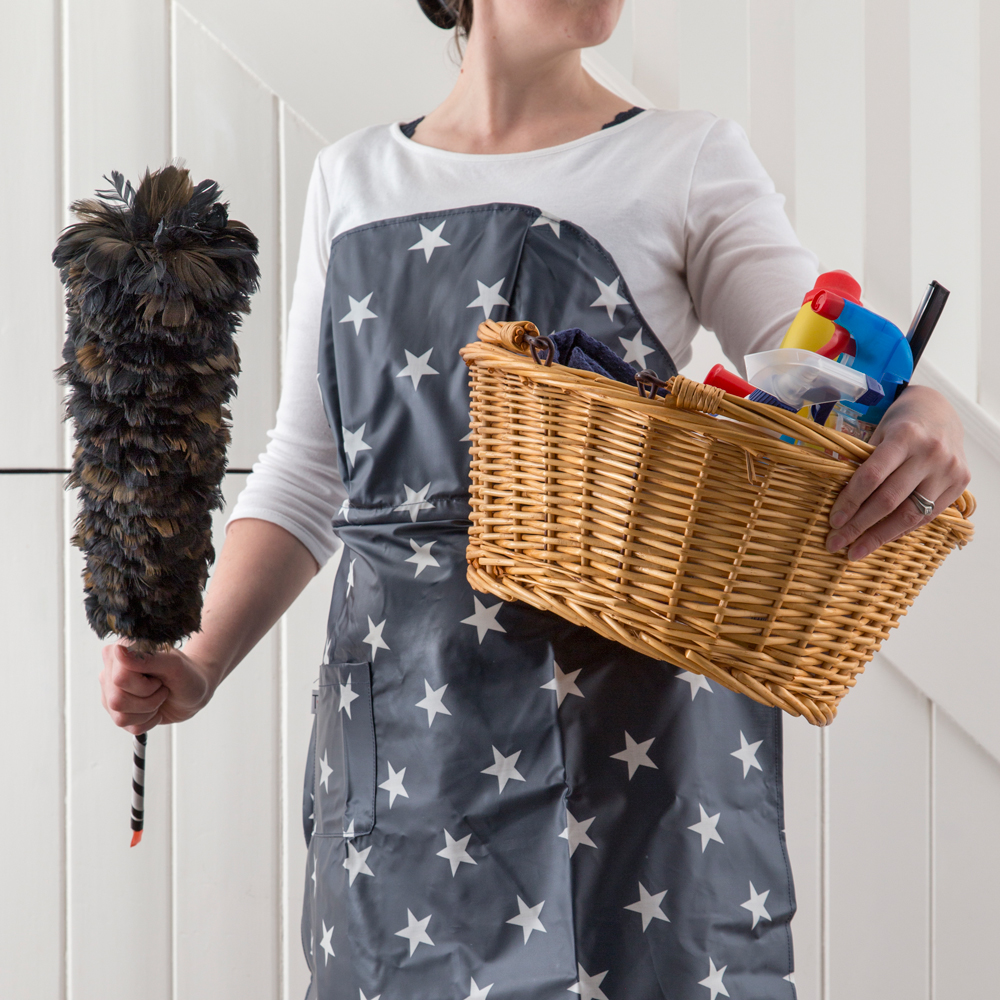Feeling stressed? Keep calm and carry on cleaning
Half of Brits admit that washing up and vacuuming have brilliant stress-busting benefits. Yes really!
Sign up to our newsletter for style inspiration, real homes, project and garden advice and shopping know-how
You are now subscribed
Your newsletter sign-up was successful
There is a well known saying: 'Tidy home, tidy mind' and it seems many of you agree, a study by household cleaning experts Kärcher has found.
Kim and Aggie eat your heart out: 10 signs you’ve taken your cleaning obsession too far

Researchers found heavy work-loads, financial worries, health problems and family dramas means the average adult spends the equivalent of more than 15 hours a week feeling under pressure. So, you'd think at the end of the day switching of your computer to switch on your vacuum cleaner would be the last chore on peoples mind but the study of 2,000 found that more than half of Brits (55 per cent) turn to cleaning to calm them down, with six in ten (61 per cent) claiming that having a clean and tidy house instantly makes them feel calmer and less stressed.
More than three in ten Brits (31 per cent) clean as soon as they get home to unwind, with the relaxation kicking in after just 13 minutes. The sense of calm brought on by cleaning is so strong that a third of Brits (34 per cent) even say they have cleaned things which didn’t need it just because they were feeling stressed.
'Our lives are becoming more stressful than ever before, so it’s important to take some time to relax and calm down, particularly after a long day,' Jack Sweeney, Marketing Manager for Kärcher UK explains, 'While reading and listening to music are well-known stress relievers, it seems the old adage ‘tidy home, tidy mind’, also rings true. Not only does cleaning your home leave you feeling satisfied and house proud, but being able to sit down in a tidy room is often relaxing in itself.'
Make light work of it: 12 unusual hacks for keeping your home clean

The relationship between cleanliness and calmness often runs deeper, with four in ten (40 per cent) saying that a dirty home was often the cause of their stress in the first place. And over two thirds of Brits who clean their home say the feeling of productivity associated with it helps to alleviate their stress.
Sign up to our newsletter for style inspiration, real homes, project and garden advice and shopping know-how
Washing up was found to be the most common chore to do when stressed, followed by vacuuming and doing the laundry, with cleaning the bathroom and toilet even listed among the most common stress-relieving chores.
Here's the top 10 stress busting cleaning rituals:
- Washing up
- Vacuuming
- Laundry
- Wiping down the kitchen surfaces
- Tidying things away
- Dusting
- Cleaning the bathroom/toilets
- Cleaning windows
- Ironing
- Mopping the floors

Sweeney continues: 'The research shows that the act of cleaning your home is adopted by many Brits as an effective stress management technique, with the end result of a cleaning session, a clean and tidy house, helping more than half of the nation unwind.'
Disagree? Revealed: The home cleaning jobs that we’re most likely to avoid
But don't worry if you are not convinced the Kärcher study also found other stress-busting activities include going for a walk, having a glass of wine and watching a film. So, maybe the windows can wait until the weekend after-all.
Rachel Homer has been in the interiors publishing industry for over 15 years. Starting as a Style Assistant on Inspirations Magazine, she has since worked for some of the UK’s leading interiors magazines and websites. After starting a family, she moved from being a content editor at Idealhome.co.uk to be a digital freelancer and hasn’t looked back.